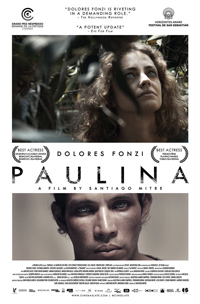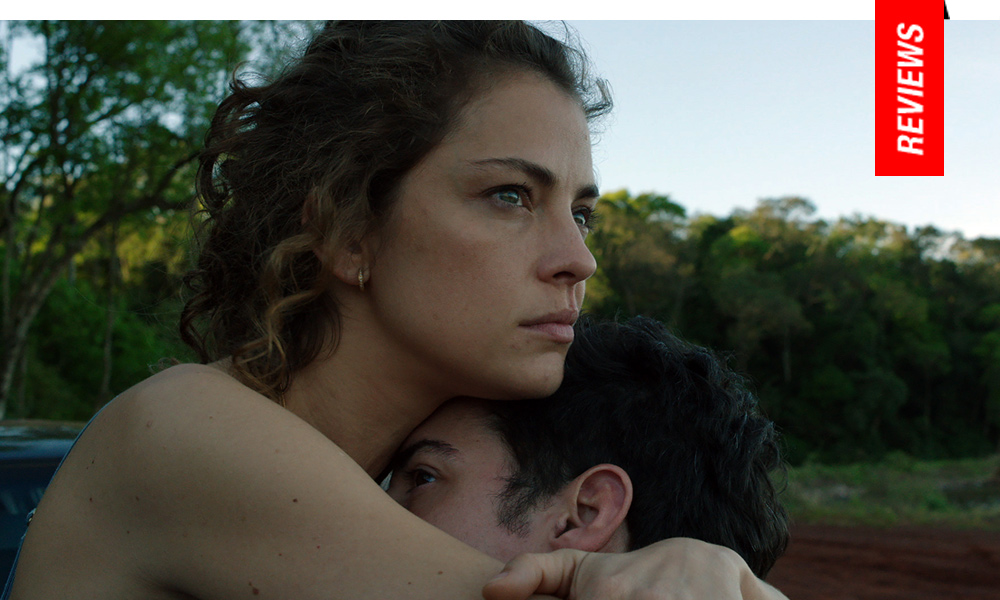She’s Having a Baby: Mitre Explores the Yoke of Victimhood in Uncomfortable Drama
 Argentina’s Santiago Mitre scores his first international success with his third feature, Paulina, which took home the Grand Prize out of Critics’ Week at the 2015 Cannes Film Festival as well as the FIPRESCI Prize. Nearly two years after its premiere (and a slew of festival awards heaped on the head of leading star Dolores Fonzi), Mitre’s difficult conversation piece about an idealistic young woman gang-raped then willfully opposed to punishing her assailants at last achieves theatrical release stateside.
Argentina’s Santiago Mitre scores his first international success with his third feature, Paulina, which took home the Grand Prize out of Critics’ Week at the 2015 Cannes Film Festival as well as the FIPRESCI Prize. Nearly two years after its premiere (and a slew of festival awards heaped on the head of leading star Dolores Fonzi), Mitre’s difficult conversation piece about an idealistic young woman gang-raped then willfully opposed to punishing her assailants at last achieves theatrical release stateside.
The kind of art-house provocation which will find love amongst those prone to misanthropy or masochism, most will find its titular character’s response to her trauma baffling and unsettling. And yet, it calls to question the right of the body vs. the bureaucracy as well as the harrowing oppression of victimhood gilded by privilege in a reality stacked perilously against the poor and the darker skinned.
In a film easier to respect for its ambitious attempts to examine the inherent cultural sinkholes which not only foster rape culture but assure the continuation of the subjugation of the disenfranchised, its eponymous subject provides an unusually paradoxical portrait of female agency.
Determined to speak truth to power, Paulina (Fonzi) goes head-to-head with her father (Oscar Martinez), a prominent judge, when she announces she has taken a post as a teacher in a remote village on the Paraguay-Brazil border. Dismayed at what he considers to be her recklessness in abandoning a Ph.D. to become a lawyer, he has no choice but to relent. Her inexperience is initially evident in her first interactions with her class, but she begins to find an easy rhythm with the help of a co-worker (Laura Lopez Mayano). Meanwhile, the film backtracks to the dilemma of Ciro (Cristian Salguero), a sawmill worker recently dumped by his girlfriend Vivi (Andrea Quattrocchi). Fuming over her public transgressions with another, Ciro and his friends mistake Paulina for Vivi one night and rape her.
Mitre, who tends to be fascinated (and get lost inside) characters immersed by the political or social structures which define them (as seen in his 2011 debut The Student as well as his star-studded 2017 The Summit, which finds Fonzi playing the hysterical composite of another privileged woman equally indebted/compromised by her powerful father) manages something a lot more uncomfortable in this sinewy exercise. In fact, Mitre is updating a screenplay from Eduardo Borras from the previous 1960 version of the film directed by Daniel Tinayre.
Known as La Patota (aka The Duck) in Argentina, the original moniker ruefully insinuates Paulina is metaphor for the famed idiom of the sitting fowl which proves to be an easy target. Her mixture of stubbornness and naiveté is clear from the opening moments as she argues her idealism with her father (“Stop being stupid, Paulina,” he jeers) regarding her decision as “an educated woman working in the slums.” Clearly out of her element regarding how to handle these unruly teens, her obsessive commitment to her ideals results in one of the most uncomfortable rationalizations on the sober side of Verhoeven’s Elle (2016). To the delirious disapproval of all those around her, Paulina refuses to finger the culprits even after discovering their identities, claiming “When the poor are involved, the justice system doesn’t want truth, just the guilty.”
Pregnant and refusing to abort the fetus, her father and fiancé (Esteban Lamothe, of Mitre’s The Student) attempt to take matters into their own hands, hounding her to get rid of the child while meanwhile crusading on their own to arrest the young men who raped her. However, their attempts provide Paulina with more justification to cling to her own beliefs and her own definitions of justness. “Nobody can understand unless they’ve been through it,” she cries. “Being a victim doesn’t help me.” And it’s these arguments which sustain Paulina as more than a mere morbid drama about perverse martyrdom and rather a portrait of ownership, troubling as it is to comprehend.
As the lead, Fonzi displays a clear eyed, steely reserve, even as she navigates through coping mechanisms like shock and eventually frustration. Recalling Greta Scacchi in her cold gaze, Fonzi’s Paulina is a complex characterization of a woman at a perilous crossroads between hypothetical dogma and misogynistic reality.
★★★½/☆☆☆☆☆
















 Argentina’s
Argentina’s 










